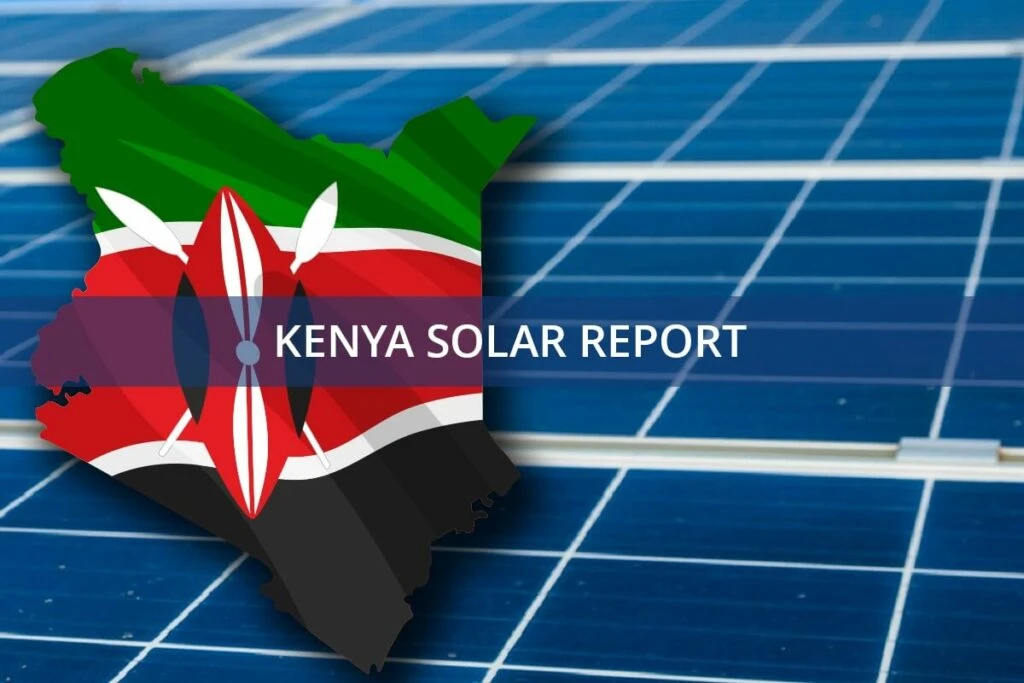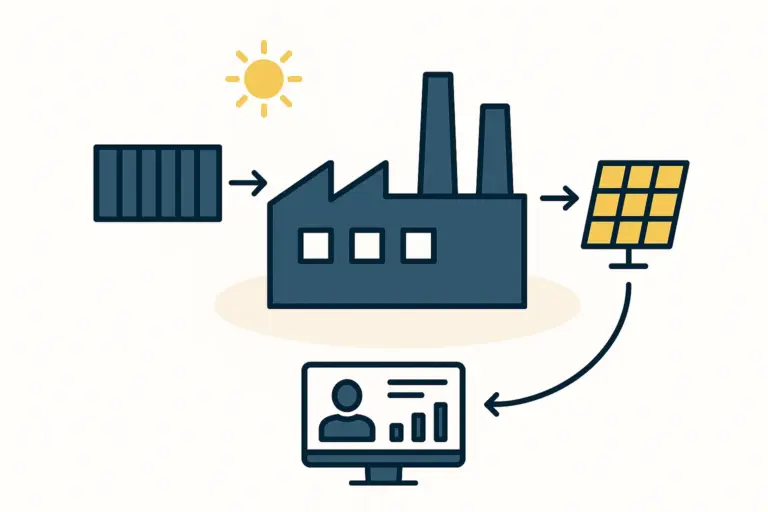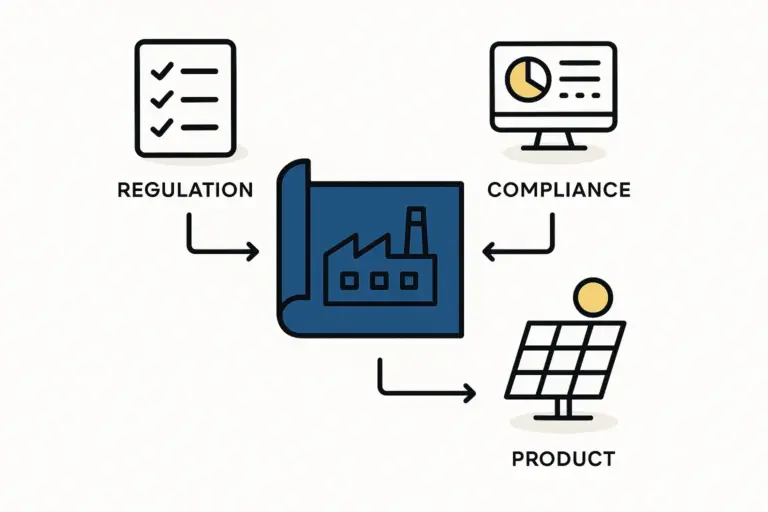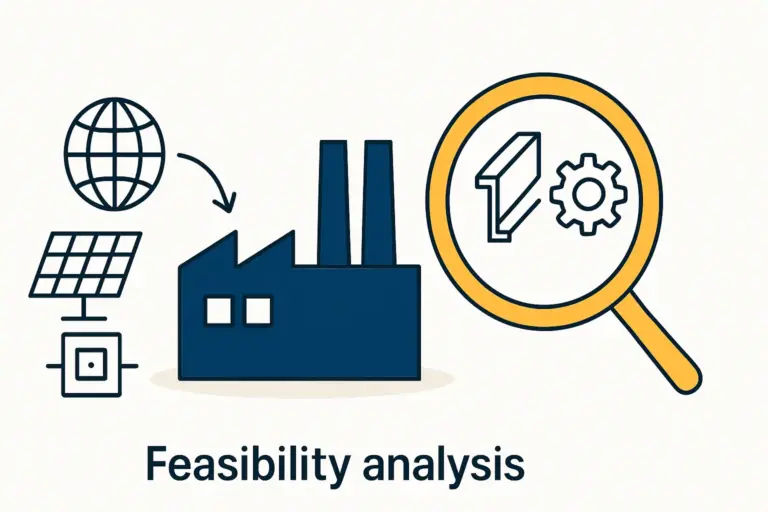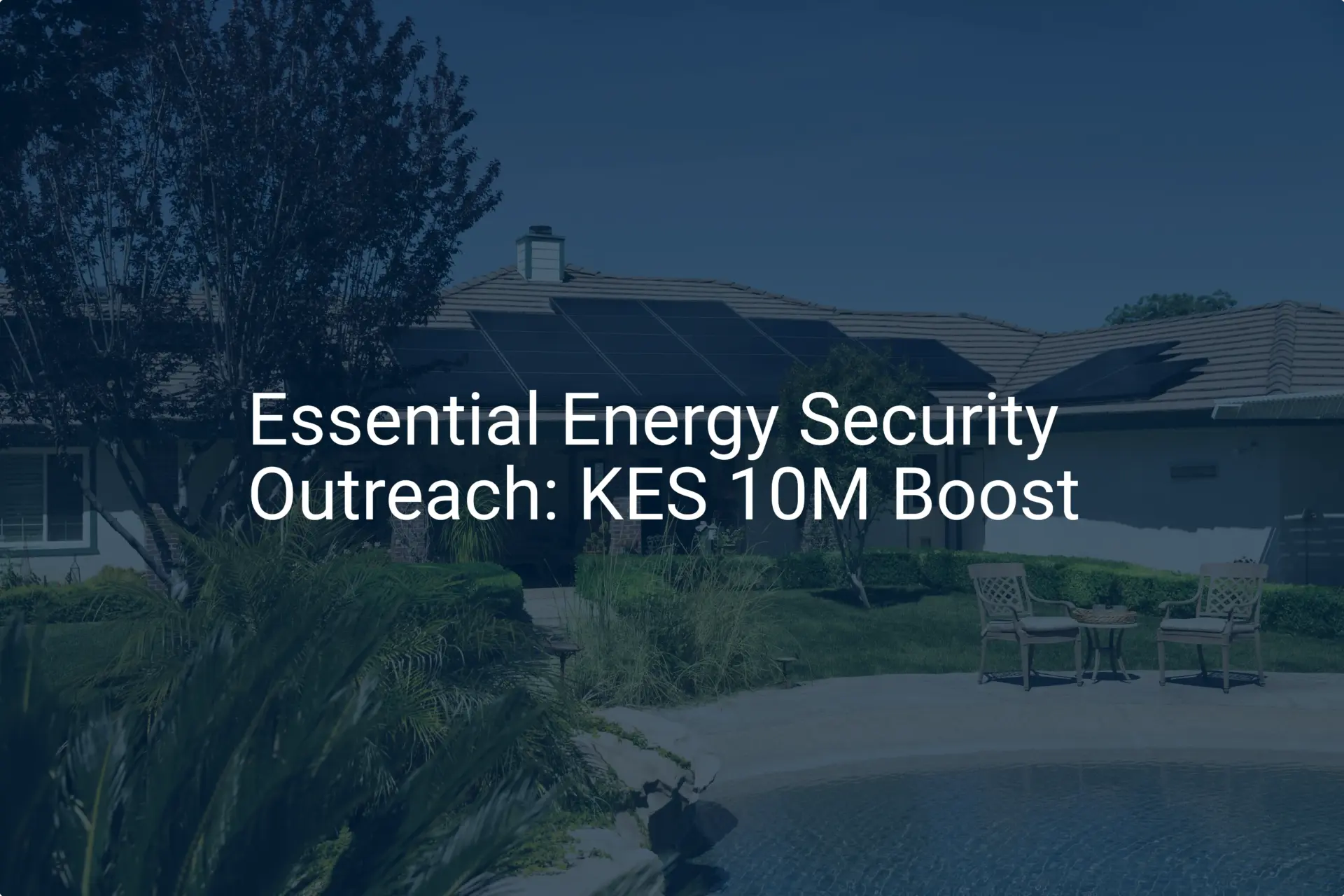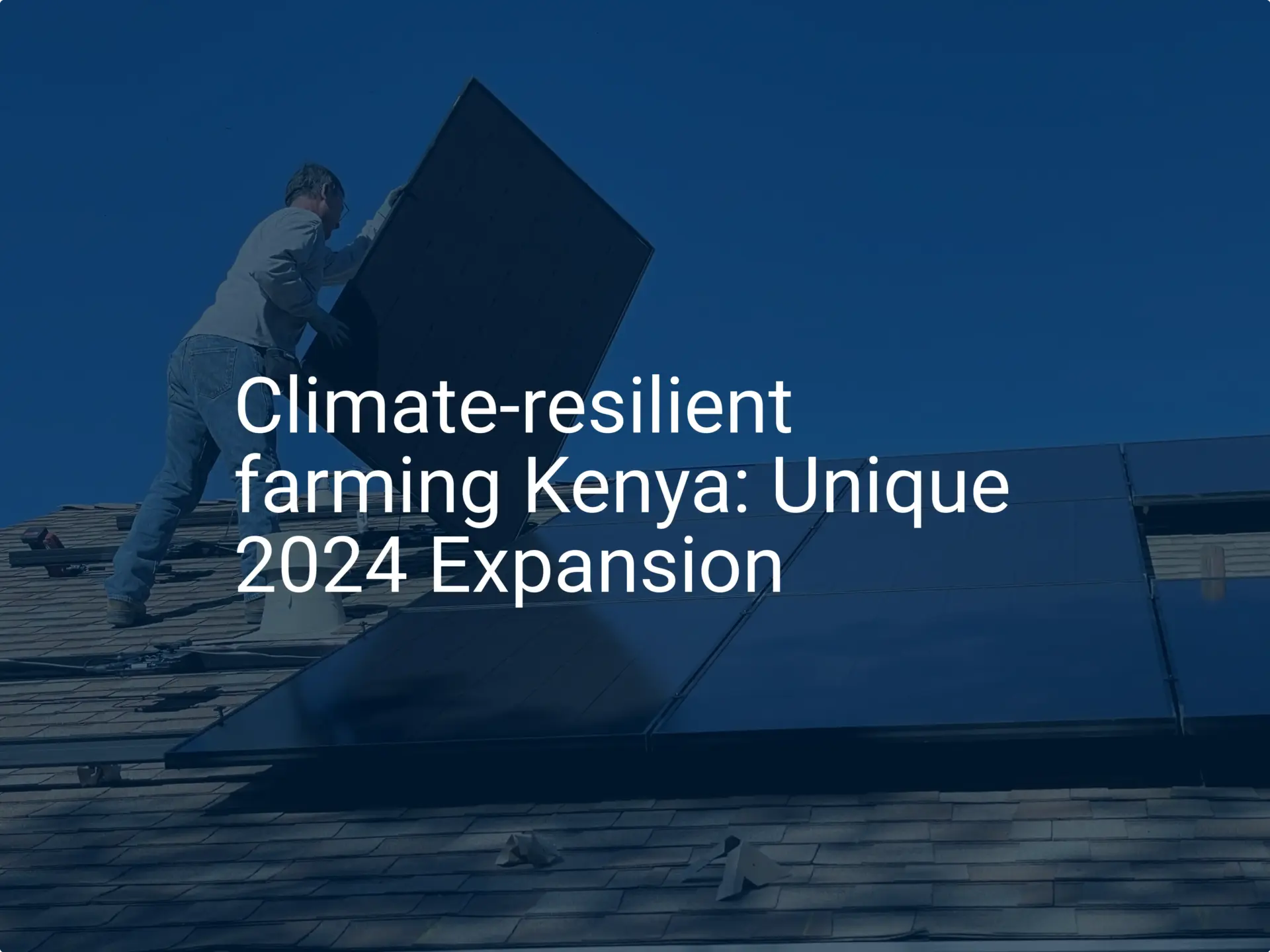For an investor surveying East Africa, Kenya stands out as a logistical and economic hub. Its strategic port, thriving economy, and regional leadership make it a compelling location for new industrial projects.
But for a capital-intensive, high-tech venture like solar module manufacturing, a surface-level view isn’t enough. A deeper understanding of the business climate is essential to separate genuine opportunity from potential pitfalls.
This article offers a foundational analysis of Kenya’s economic conditions, regulatory environment, and logistical infrastructure. Designed for business professionals exploring market entry, it serves as a primer on the complexities of establishing a manufacturing presence in one of Africa’s most dynamic economies.
Economic Stability and Growth: The Foundation for Investment
Long-term stability is a primary concern for any significant capital investment. Kenya has distinguished itself in the region with a resilient and diversified economy. Unlike nations heavily reliant on a single commodity, Kenya’s economic pillars include agriculture, services, tourism, and a steadily growing manufacturing sector.
This diversification provides a buffer against global market shocks and has fueled consistent GDP growth over the past decade. For an investor planning a solar factory, this economic performance translates into a more predictable long-term operating environment. Stable economic growth supports domestic demand, currency stability, and a reliable financial sector—all critical factors for a successful manufacturing enterprise.
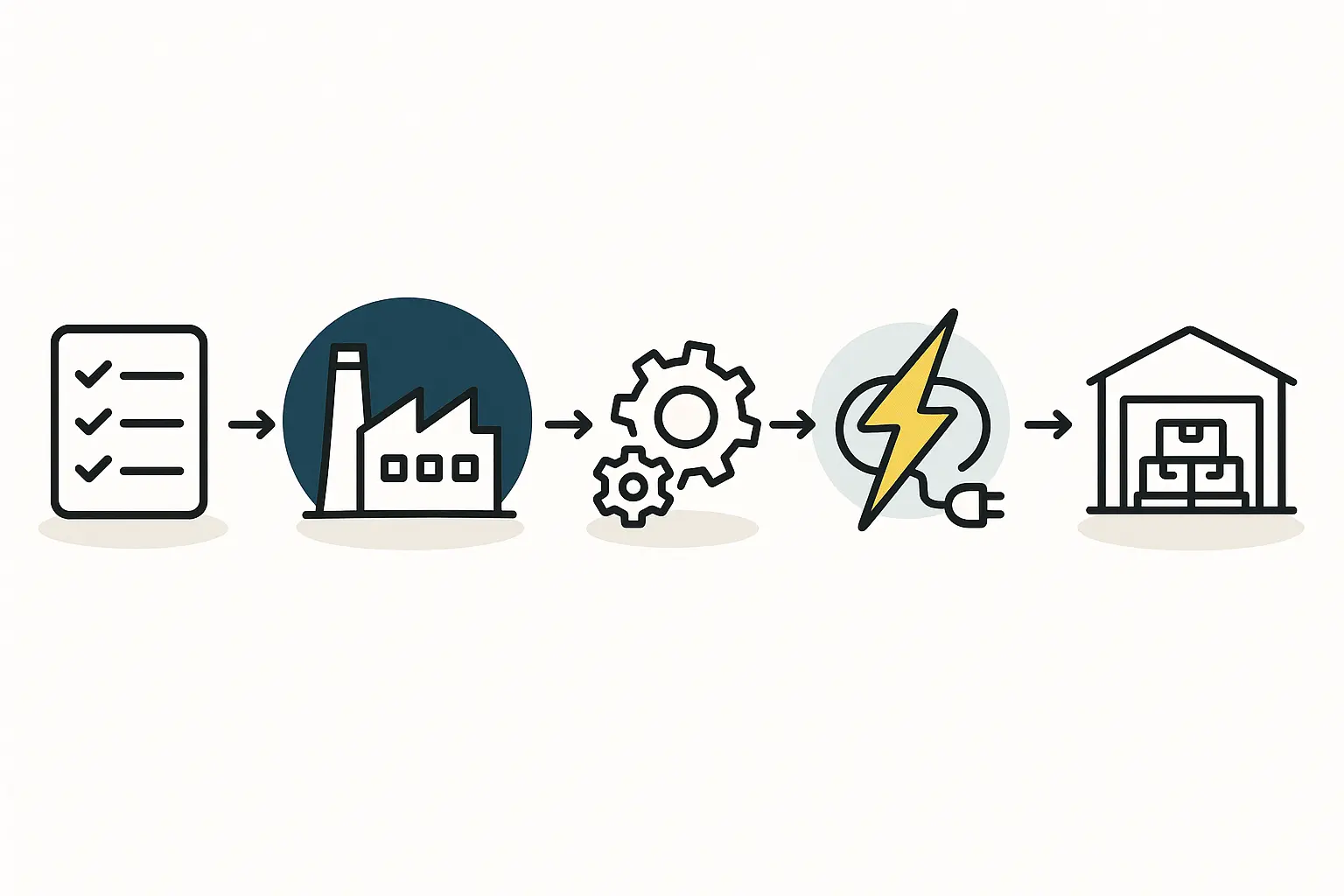
This sustained growth is fundamental to the wider solar manufacturing opportunity in Kenya, creating fertile ground for both domestic consumption and regional exports.
Navigating the Legal and Regulatory Framework
A clear, predictable legal framework is the bedrock of investor confidence. In recent years, Kenya has made significant strides to improve its business environment, an effort reflected in its rising position on global indices. The government, through agencies like the Kenya Investment Authority (KenInvest), actively courts foreign direct investment by streamlining bureaucratic processes.
Registering a business, for example, has been streamlined into a more manageable process. While diligence is still required, the path from name reservation to tax registration is well-documented.
Key considerations for a solar manufacturing investor include:
- Investment Protection: Kenya is a signatory to international investment protection treaties, providing legal recourse and assurance for foreign investors.
- Incentives for Manufacturing: The government offers specific incentives, such as investment allowances on plant and machinery, and exemptions from import duties on capital equipment. Understanding these incentives can significantly lower initial investment requirements.
- Clarity on Repatriation: The legal framework provides clear guidelines for repatriating profits and dividends, a critical factor for any foreign investor.
Based on J.v.G. Technology GmbH’s experience guiding international clients, a thorough review of the current Finance Act with local legal counsel is an essential first step toward maximizing these advantages.
Infrastructure and Logistics: The Arteries of Manufacturing
A factory’s efficiency is directly tied to the quality of its logistical connections. Anchored by the Port of Mombasa, Kenya’s strategic location on the Indian Ocean coast provides a critical gateway for importing raw materials like solar cells, glass, and aluminum frames. The port serves not only Kenya but also landlocked neighbors such as Uganda, Rwanda, and South Sudan.
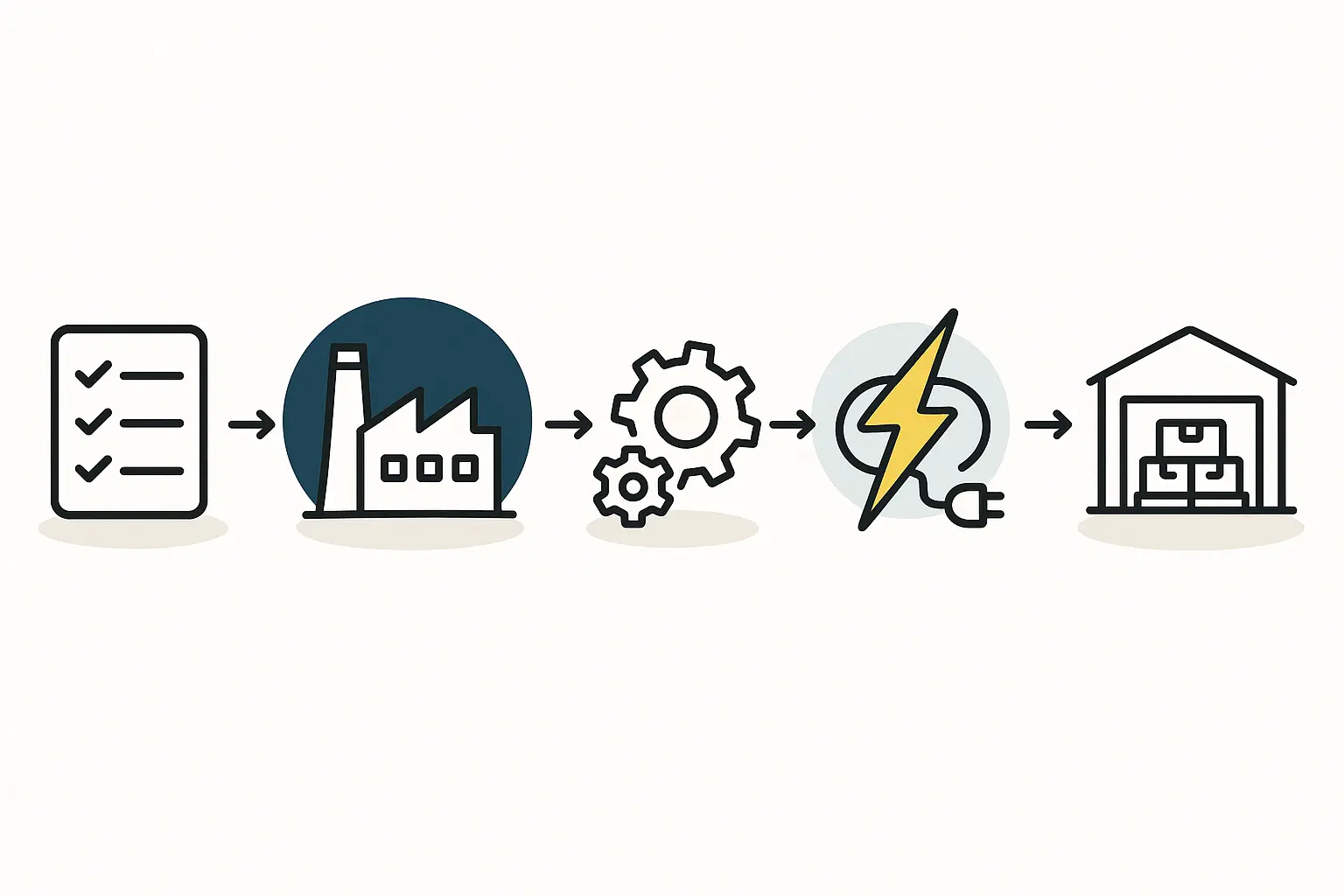
Inland, the Standard Gauge Railway (SGR) connects Mombasa to Nairobi and extends toward the western part of the country. This modern railway significantly reduces the time and cost of transporting goods from the port to inland industrial hubs.
However, prospective investors must also plan for last-mile logistics. While major corridors are well-developed, seamless transport from a main depot to a factory site still requires careful planning. Similarly, while the national power grid is expanding, manufacturing facilities often incorporate backup power solutions to guarantee uninterrupted operations—a standard practice in many emerging markets.
Labor and Skills: Tapping into Local Talent
Kenya has a significant demographic advantage: a young, educated, and increasingly urbanized population. The country boasts a high literacy rate and a strong network of universities and technical colleges that produce a steady stream of graduates. For a solar manufacturing venture, this presents an opportunity to build a skilled local workforce.
While specialized roles, such as lamination process engineers or cell testing specialists, may require initial training from external experts, Kenya offers a large pool of trainable, technically-minded personnel.
As one investor in the automotive assembly sector noted, “The initial investment in training our Kenyan team paid dividends in operational loyalty and a deep understanding of local market dynamics.”
The labor market also offers wages that are competitive by global standards, a factor that can significantly benefit a manufacturing plant’s operational budget.
Government Support and Special Economic Zones (SEZs)
To further accelerate industrialization, the Kenyan government has established Special Economic Zones (SEZs) and Export Processing Zones (EPZs). These designated areas offer a package of attractive incentives for new businesses, including:
- Tax Holidays: A 10-year exemption from corporate and withholding taxes, followed by reduced rates.
- Duty and VAT Exemptions: Exemption from all existing taxes and duties on imported inputs, machinery, and raw materials.
- Streamlined Administration: Access to one-stop-shop services for licenses, permits, and regulatory approvals.
- Infrastructure: Guaranteed access to high-quality infrastructure, including reliable power, water, and fiber optic connections.
Locations like the Naivasha SEZ or the Dongo Kundu SEZ near Mombasa are specifically designed to support manufacturing and export-oriented businesses. For an entrepreneur planning a turnkey solar production line, establishing a facility within an SEZ can dramatically reduce startup friction and improve the project’s long-term financial viability.
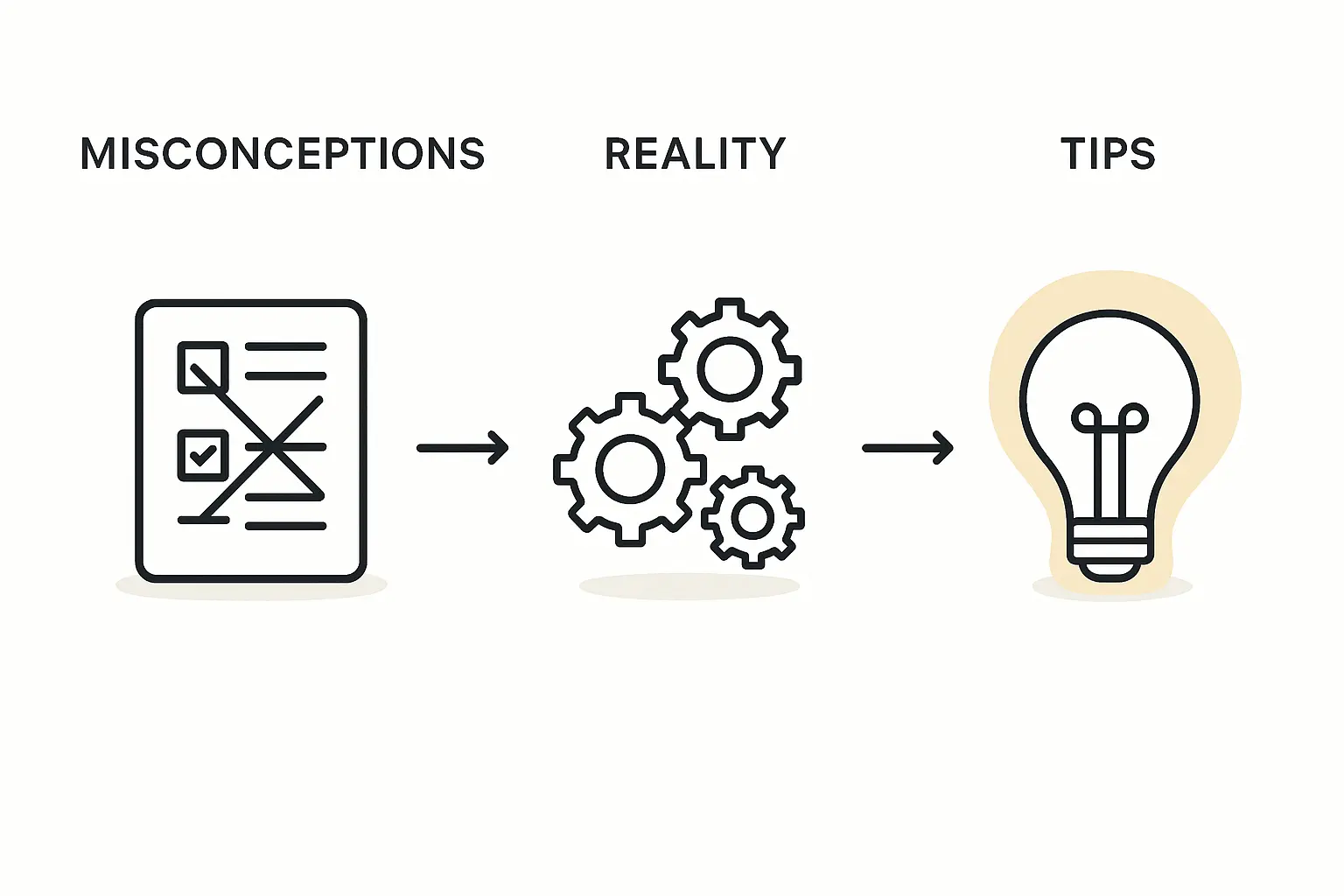
Frequently Asked Questions (FAQ)
What is the typical timeline for business registration in Kenya?
With all documentation in order, the formal process of registering a company can typically be completed within two to four weeks.
Are there foreign ownership restrictions for manufacturing companies?
No, Kenya allows 100% foreign ownership of manufacturing companies. There are no requirements for a local partner, although strategic partnerships can offer valuable market insight.
How are profits and dividends repatriated?
The process is straightforward. Once all domestic taxes are paid, profits and dividends can be freely repatriated through licensed commercial banks.
What are the main tax considerations for a new manufacturing business?
The primary taxes are Corporation Tax (currently at 30% for resident companies, unless operating in an SEZ), Value Added Tax (VAT), and Pay As You Earn (PAYE) for employees. Manufacturing businesses benefit from an Investment Deduction that allows them to deduct a significant portion of capital expenditure from their taxable income.
How do import regulations affect a turnkey solar production line?
Capital equipment for setting up a factory generally qualifies for import duty exemptions. Working with an experienced logistics partner and customs agent is crucial to ensure all paperwork is correctly filed to leverage this benefit. Operating within an SEZ further simplifies this process.
Conclusion: From Understanding to Action
Kenya presents a compelling case for solar manufacturing investment, underpinned by a stable economy, a pro-business government, and strategic infrastructure. The environment is not without its complexities, but the challenges—such as navigating bureaucracy or planning for infrastructure gaps—are well-defined and manageable with proper diligence and local expertise.
Success does not hinge on being a solar expert from day one but on methodical planning and leveraging the supportive frameworks in place. This foundational understanding of the business climate is the essential first step.
The next step is to analyze the specific market dynamics for solar products within the region. A deeper analysis of solar manufacturing opportunities in Kenya, exploring market size, demand drivers, and the competitive landscape, provides the commercial context needed to make a sound investment decision.

